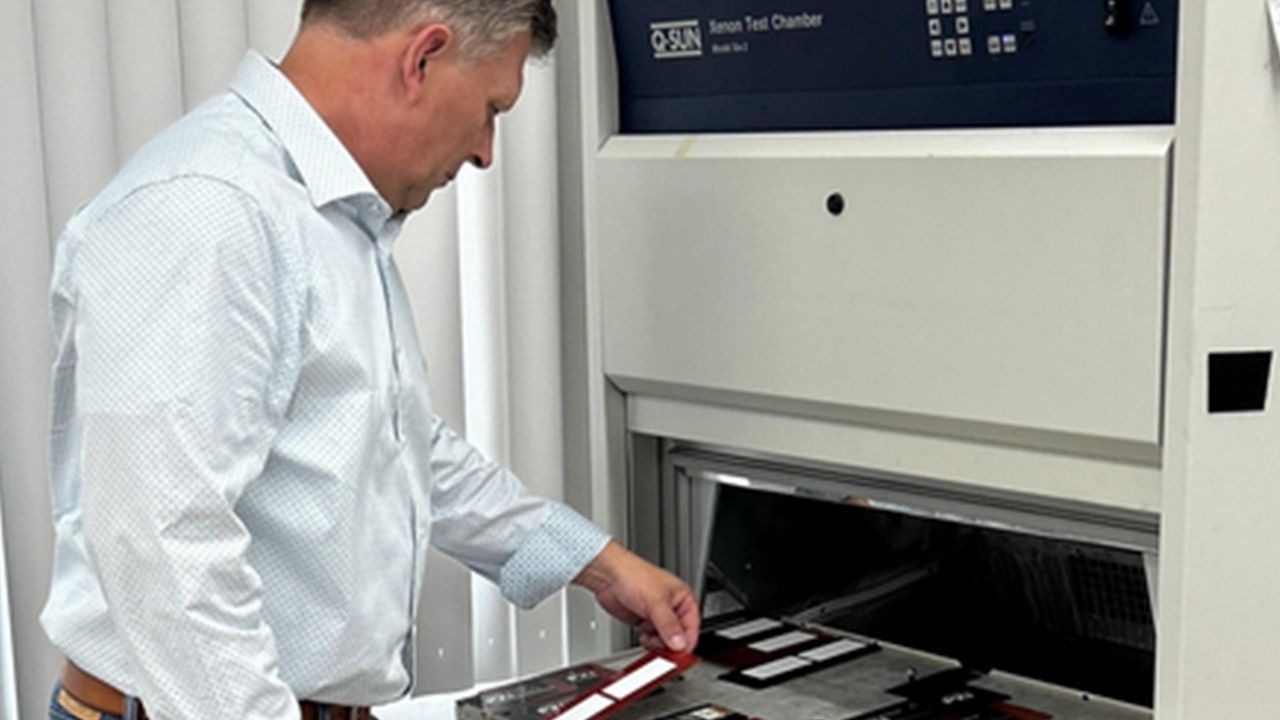Creating and sustaining knowledge in a changing industry

Malcolm Keif, professor of Graphic Communication at CalPoly University, explains the importance of establishing a culture of learning within the enterprise
Few things set companies apart more than their approach to human development. The world’s best companies figure out ways to inspire their employees to learn.
Abundant learning nearly always translates into profitability. As an example, the Printing Industries of America’s (PIA) annual Ratio’s Study shows us that the top 25 percent of companies as ranked by profitability outspend the “average” printer in only one expense category: training. Even when development does not directly influence the bottom line, it often results in a more satisfied workforce.
So how does a company become that great “learning organization”, as Peter Senge coined in his book, The Fifth Discipline?
More than anything, it takes desire to do it. Even though we know that profitable companies inspire learning, you need to forget that. Learning is not sustained unless it is valued for its own sake – not because it pays off. Desire comes from knowing it is the right thing to do, not because you can make money doing it.
Learn to be a great organization
Great learning organizations possess common characteristics that make them effective at acquiring corporate knowledge. Those characteristics include:
• They fall in love with learning for learning’s sake
• They eliminate barriers to exploration
• They mentor learning
• They convert individual knowledge to corporate knowledge
• They reward learning
Each of these characteristics is packed with nuggets to consider. Take the first bullet point, for example. Learning organizations appreciate learning because it makes it smarter as an organization. It is fun. It is useful. It keeps us sharp. Learning makes us more fulfilled as humans. It gives us confidence. It keeps us used to learning so that we can quickly adapt exactly when we must.
Because learning is so valuable, the best companies do what it takes to eliminate the barriers to exploration. This means they focus on minimizing bureaucracy that comes with companies that get bogged down with barriers. Exploration needs to come easy and learning needs to happen as a normal part of everyone’s day. Employees that learn must share that knowledge with their peers.
These great companies also focus on mentoring so that learning is transferred individually. When leaders focus on learning, their subordinates value the same. When job training involves exploration instead of simply memorizing a routine, individuals know that exploration is a part of their day.
It is just as important to convert individual knowledge to corporate knowledge. This is challenging in closed environments where employees guard their knowledge. It is far better to foster a culture of sharing, cross-training and learning for learning’s sake.
Better yet is codifying what is learned in some form of knowledge management system, but do not get bogged down with a system if it takes so much effort that it will not get done. Even something as loose as asking each team member to teach something new each month can be useful.
The last bullet, involves rewarding learning. Great organizations put focus on rewarding employees for learning. This speaks to the values of the company. You pay for what you value. When we reward something, we usually get more of it.
In a 2011 Kappan article, the official publication of Phi Delta Kappa International, the Professional Association in Education, Kirsten Olsonan provided a unique analysis of the characteristics of individual learners. In the title I learned to believe in me, Olsonan described three main qualities:
• Great learners see learning as pleasurable and place a high value on learning
• Great learners are unusual problem solvers who know how to ask for help and excel at reframing their difficulties
• Great learners are passionate
The problem is that a lot of us associate learning with school. And in truth, school was not a pleasurable memory for many of us. That is certainly unfortunate but really does not change the notion that we can be great learners whether we exceled in school or dropped out. School is school and sometimes learning takes place there. But learning is completely independent from school. It should be pleasurable and it should be valued. And, you should be passionate about what you are learning every day.
What are the Barriers to Learning?
Leaders can do a lot to promote innovation within the enterprise. It usually starts with building that business culture that values learning as a tool for success. There are many barriers that range from apathy to fear that managers must consider addressing in order to establish such a working culture.
Among the biggest hurdles is an individual’s fear of failure. This often hinders people from exploring beyond their norm. And, it often is a result of challenges related to school or another learning-based environment in the past. The key is to remove the negative feelings associated with exploration and to make learning enjoyable – only then can true innovative notions be tapped. When people begin to have fun through learning, they value the process and are willing to take steps to greater exploration.
A second barrier is the traditions found in organizations. Traditions are great. They help us define our values and declare where we have come from and who we are to become. But they also limit us. They tend to define what we can and cannot do. So, sometimes we need to break down the walls of our traditions and allow employees to think way beyond who we are and what we do.
The same is true with the roles in our companies. People get locked into their jobs and sometimes that limits their capacity. Businesses must periodically break down those barriers and let exploration happen.
Maybe the most insidious barrier is just plain old busyness. We get so busy that we forget to periodically drop our duties and just “mess around”. If we play with processes or materials or workflows or techniques, we may just uncover something that can improve our operations.
One final barrier to learning is the fear of giving away company secrets. If we share ideas with others to stimulate thought, are we giving away the key to our success? I don’t believe so. I think we need to have these stimulating discussions to keep our own juices flowing. As an evolving industry, let’s welcome the thoughts from all parties, old and young, experienced and bright-eyed, so that we may fully debate about the best ways to do things. Open minds opens discussion and relieves the barriers for modern enterprise to explore alternate approaches to achieving innovation.
If you want innovation, you really do want learning to permeate your organization. You will want to make learning a part of everyone’s job. It will be worth incentivizing learning so that your culture supports innovation. You will want to reward exploration. It is the path to a great organization. It is also the path to a profitable organization. But you don’t want to focus on the profit side – just let it happen naturally.
This article first appeared in the Labels and Labeling Yearbook 2013
Stay up to date
Subscribe to the free Label News newsletter and receive the latest content every week. We'll never share your email address.

